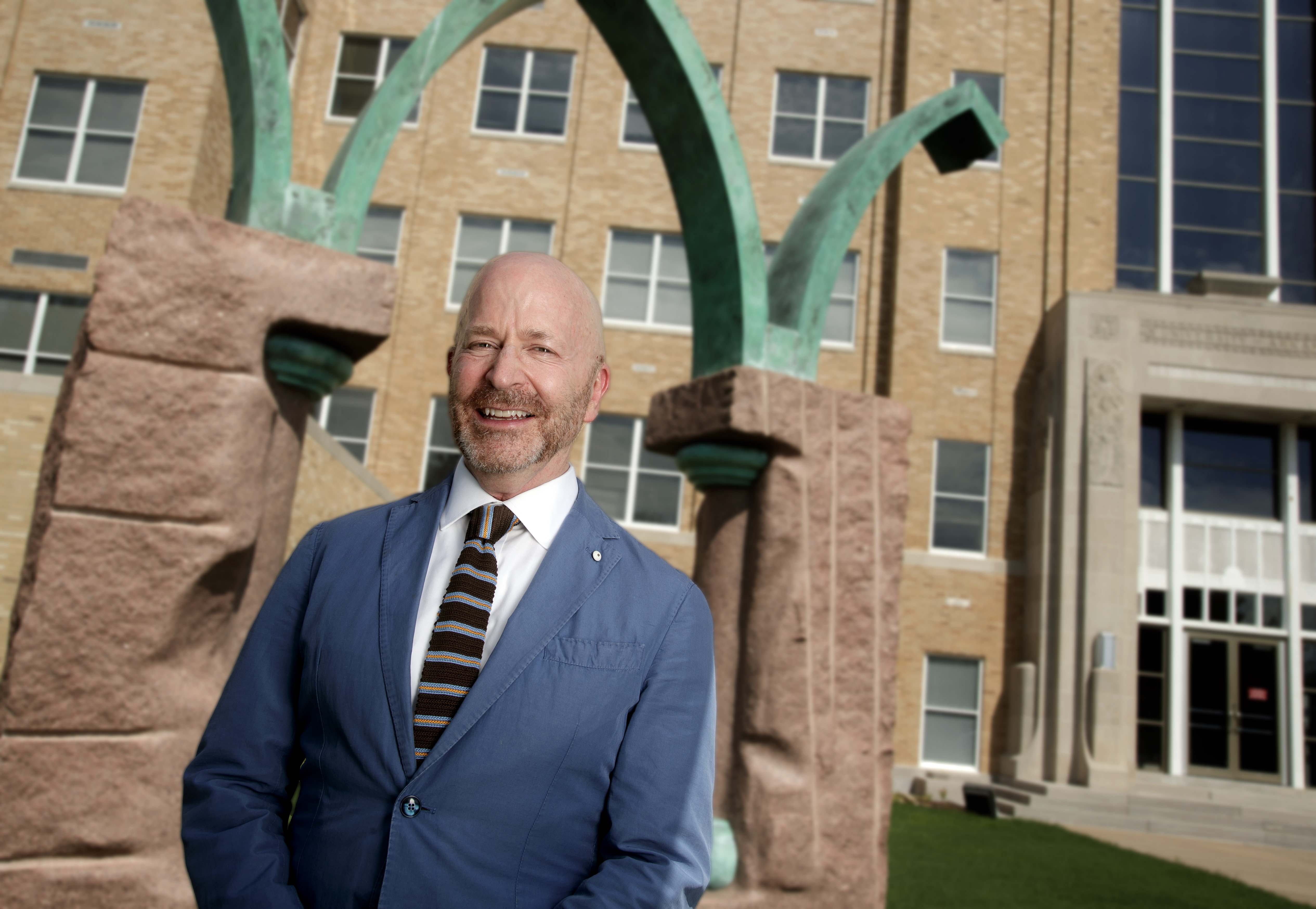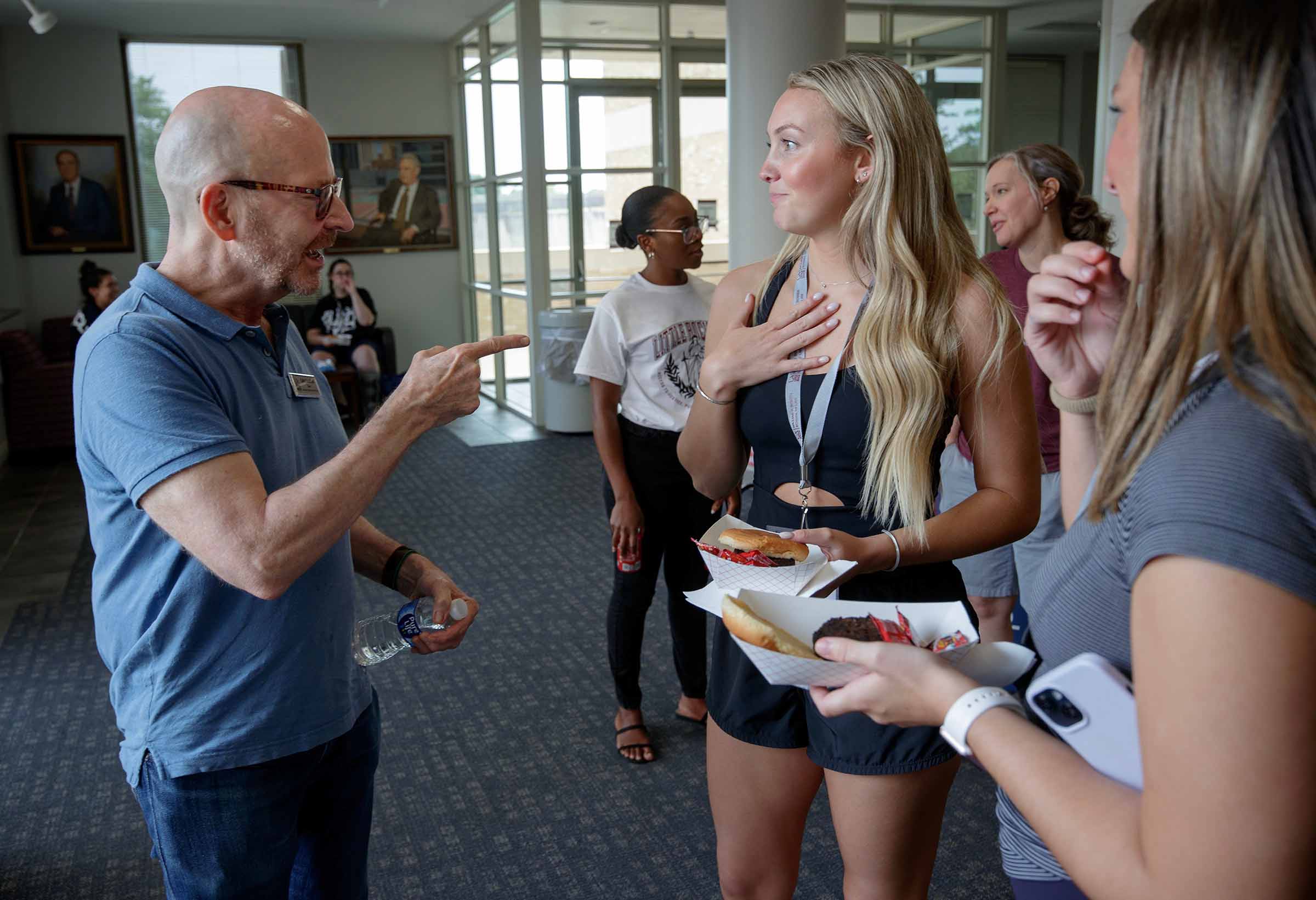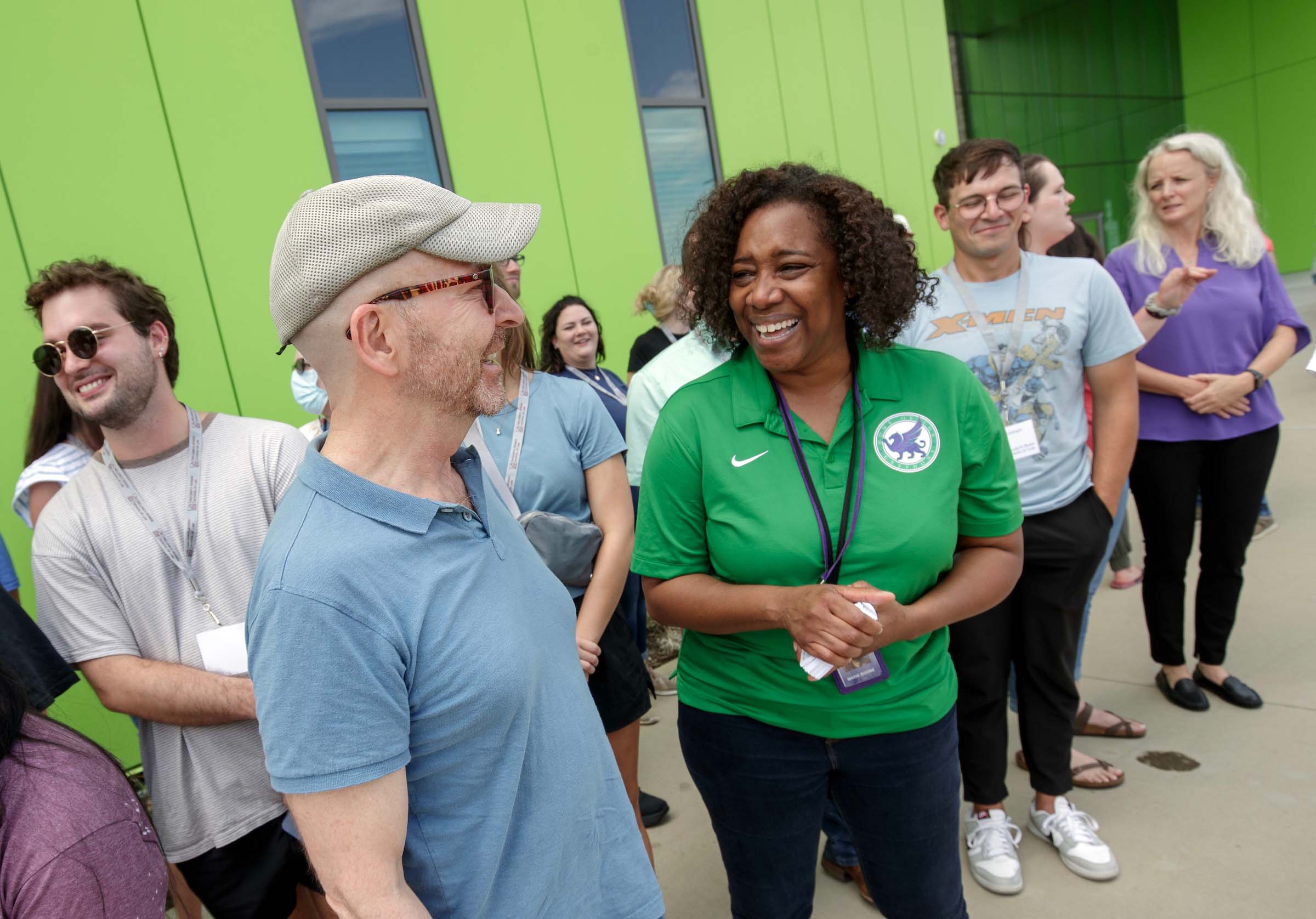Crawford begins tenure as dean of Bowen
August 21-27, 2023
By Angelita Faller
A new era of leadership has begun at the University of Arkansas at Little Rock as Colin Crawford starts his tenure as the dean of the William H. Bowen School of Law.
With a proven track record of fostering excellence, Crawford steps into the role with an eye to bring the law school to new heights.
“When I set out to find a new position, one of the schools I focused on was Bowen,” he said. “I knew a number of the faculty here and had worked on a national committee with my predecessor, Theresa Beiner. I think highly of all of these people. So, when I learned that there would be a dean search, I was excited because of what I knew of the school and its bright and entrepreneurial faculty. Since arriving on July 3, that impression has been confirmed 100%. I’ve also had the chance to meet many distinguished alums and impressive students. And in the university and in the community, people are unbelievably welcoming. I couldn’t be more happy to be here.”
In his first few months on the job, Crawford is focused on meeting with faculty, staff, students, alumni, and community members to find out how Bowen can ensure it is best meeting the needs of the community.
When asked what agenda he brings to his new position, Crawford responded as follows: “I like to say that this is not the Colin Crawford School of Law,” he said. “My style of leadership is not to come in and say what we will do. I need to learn from others what this community wants from the law school and what we can do. I need to learn about the university and community first before figuring out what is next. During my interviews, many people discussed the need for an immigration clinic - so that is a possibility I am exploring.”
The Bowen School of Law has a well-known reputation for preparing lawyers for a career in public service. Bowen is home to seven legal clinics that provide pro-bono legal services to Arkansas residents and gives participating students unique opportunities to learn hands-on skills while helping members of the public. With these strong clinical programs, Crawford observed that Bowen “punches above its weight” as compared to bigger and better-resourced schools.
“Bowen is doing extremely well in recruiting students and providing them with a quality education,” Crawford added. “The proof of that is in a strong bar pass rate for our students, as well as excellent job placement rates. In the long run, I am very concerned with access to justice and continuing the wonderful work of our outstanding legal clinics. I hope to be a part of a state and national debate about how to best provide legal services in places that are underserved.”
Crawford holds a bachelor’s degree in history from Columbia University, a master’s degree in history from the University of Cambridge, and a law degree from Harvard University. His academic scholarship focuses on environmental, property, urban development, and land-use law questions, especially in a comparative and international context.
As a student of history for many years, Crawford originally wasn’t sure that he would pursue a career as a lawyer, but he eventually followed in his father’s footsteps.
“After college, I was a graduate student in history for four years, and I thought that’s what I would do,” Crawford said. “Working as a historian means that you spend a lot of time in archives. After years of research, I felt I wanted to do something that would allow me to interact with people more. That is when I decided on law. My dad was a lawyer, and I always respected his strong work ethic and sense of fairness. Because of him, I knew that the law could be a rewarding career.”
Crawford joined UA Little Rock after previously spending two years as dean of the Golden Gate University School of Law in San Francisco, California. Prior to that, he served as dean at the Louis D. Brandeis School of Law at the University of Louisville, a law school he says shared many similarities with Bowen.
“Louisville is a lot like Little Rock,” Crawford said. “It’s an urban school in the middle of a city with a similar mission. I loved being a part of the community of Louisville. While there, I was a board member of the Community Foundation of Louisville and Pulitzer-Prize winning Actors Theatre of Louisville, and I worked with the state and city bar. I loved doing that community work, and I am looking forward to repeating those kinds of involvements here in Little Rock.”
Before becoming a dean, Crawford held academic roles at several institutions, including tenured positions at Tulane University and at Georgia State University. He founded and co-directed the Center for the Comparative Study of Metropolitan Growth at Georgia State University.
“My aim is always to leave the institutions where I have worked better in some respects,” Crawford said. “At Tulane, for example, I helped start new degree programs. There and at Georgia State, I developed innovative foreign student programs and worked to give students the opportunity to study and learn all over the world. In short, I like to think of myself as an institutional citizen and strive to leave places stronger than I found them. That is always my goal.”
His international experience includes having developed and taught courses throughout Latin America and the Caribbean and publishing books and articles in English, Spanish, and Portuguese. Crawford has also lectured and taught in Brazil, China, Colombia, Cuba, France, Japan, Panama, South Korea, and Switzerland, and was a Fulbright scholar in the Dominican Republic. With his many international experiences working and teaching abroad, Crawford speaks several languages, including English, Spanish, some French, and Portuguese.
“Teaching internationally became an interest of mine many years ago. I enjoy it because it provides a chance to learn other ways of doing things,” Crawford said. “It makes you a better citizen and a better lawyer. Working in other countries, a person comes to appreciate the strengths of their own country and acquire new perspectives that can be applied back at home as well.”
Crawford recalls one of his most gratifying international experiences was serving as the project director for the Environmental Law Capacity-Building Initiative in Central America and the Caribbean funded by the U.S. Agency for International Development.
“The project was a federally funded grant from USAID to improve the teaching of environmental law in the Caribbean and Central America,” Crawford said. “It started in three countries and later expanded to five. Over the course of four years, we worked with officials in Nicaragua, the Dominican Republic, and Guatemala and then expanded to El Salvador and Costa Rica.”
With so much time devoted to the administrative side of academia, Crawford says that, since becoming a dean, he has been hard pressed to find the time he would like to dedicate to his research. Nonetheless, he tries to find time for scholarly research and writing. He has a book chapter coming out this year that ties back to his early research days in environmental law. The chapter, “Concerns About Historical Research in (Environmental) Legal Argument,” will be published in the book, “Non-Doctrinal Research Methods in Environmental Law.”
In addition, drawing upon lessons learned during the COVID-19 pandemic, Crawford recently published an article about the opportunities and challenges of online education in the legal field.
“I think one of the biggest challenges for online education is access,” Crawford said.
“We have pretty good access to online resources in the United States, but even here not everyone has access. Moreover, legal education is very interactive. It’s not impossible to be interactive online, but it’s harder to do than in a live classroom. On the positive side, online education has the potential to be a great democratizer if done right. Maintaining quality as online education expands will be a challenge, however.”
Crawford’s husband Lucas will be joining him in Little Rock. Outside of his work, Crawford enjoys gardening, bike riding, reading fiction, and cooking. Having spent time in the region before, he is excited to make new memories in the area.
“I am terrifically impressed by everyone I’ve met at the law school and the sense of community among the university administrators, faculty, and students,” Crawford said. “I’m really happy to join the Bowen School of Law and add my expertise to those around me. Bowen has a tremendous, enterprising faculty and plays a central role in the life of Arkansas’s capital city and its region. I’m excited to join an institution that is already very strong and look forward to working with faculty, staff, students, alumni, and other university and community constituents to make Bowen even stronger and to help raise its profile even further.”





